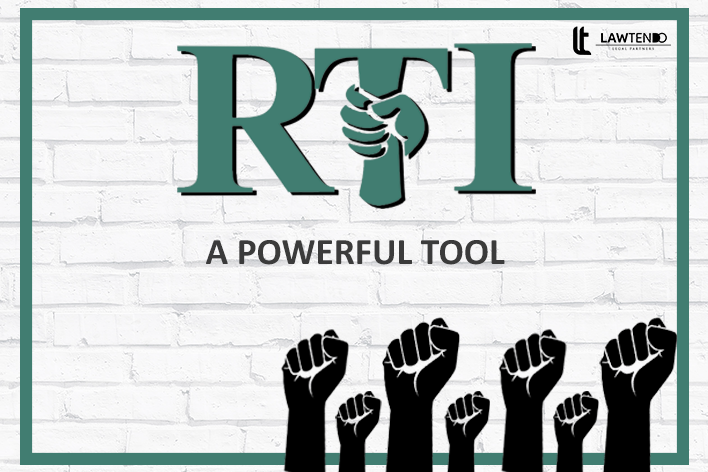What is the RTI ( amendment) bill 2019

Date : 01 Nov, 2019
Post By Sankul Nagpal
In an era where the judiciary is not just limited to adjudication but also to activism, the sphere of work and jurisdiction of the judicial organ has changed drastically. The judiciary has now adopted a more active role in securing justice to the people. One such example of the growing Judicial Activism is the Right to Information Act 2005 What is the RTI Act? The RTI Act is one of the most empowering acts for the citizens of India. It is often dubbed as the most successful outcome of judicial activism that empowers the ordinary citizens and plants confidence amongst them to question the governmental authorities and machinery. The act aims to secure accountability and citizen-centric approach, while at the same time acts as a deterrent factor that prevents governmental servants and bureaucrat’s from acting and working arbitrarily and thus fulfilling Montesque’s system of checks and balance in place. There is no doubt that the creation of RTI was a historic move, but how far is the recent move of passing the RTI ( Amendment ) Bill successful is a matter of deep discussion and debate. What is the RTI ( Amendment) Bill 2019 The RTI amendment bill was introduced in the Lok Sabha on July 19, 2019, which was subsequently passed on July 22, 2019, by the Lok Sabha and on July 25, 2019, by the Rajya Sabha. Key Changes brought out by the Amendment Bill Change in Term of the CIC, SCIC and IC One of the many changes the bill aims at making is amending Section 13 and 16 of the RTI Act, 2005. According to the 2005 Act, the Central Chief Information Commissioner, State-level Chief Information Commissioner and Information Commissioners are appointed for a fixed term of 5 years (or until the age of 65 years whichever is earlier). However, the amendment seeks that the appointment shall be for such term as may be prescribed by the central government. Change in the salaries of the CIC, SCIC and IC: As per the RTI Act, 2005 the salary of the Central Information Commissioner (CIC) was equivalent to the salary of the Chief Election Commissioner, salary of the State Chief Information Commissioner (SCIC) and the Information Commissioners (ICs) was equivalent to the salary of the Election Commissioners and at the state level, State Information Commissioner (SIC) the salary was equivalent Chief Secretary to the state. The bill, however, aims to amend the act so as to provide that the term of office and the salaries, allowances and other terms and conditions of service of, the CIC, SCIC and IC, shall be such as may be prescribed by the central government. The Ground Reality of these Changes Aiming to completely change the way CIC, SCIC and IC function the amendment aims to grant greater powers to the centre as the supreme decision-making body. This will make the CIC, SCIC and the ICs a puppet of the government rather than neutral and responsible officials. The CIC, SCIC and ICs can now decide to withhold information that can go against the government to which they are loyal. The amendment will also create an unbiased a non-transparent system of salaries, allowances and tenure which now according to the amendment will be decided on a case to case basis. The proposed amendment lowers the status of the CIC, SCIC and IC from that of the Supreme Court Judge which would lower their authority to issue the directives to other officers. The impugned amendment also ignores the importance of independence for a position of such stature and responsibility. The amendment takes away transparency and empowers the central government to decide which defeats the very idea of RTI. The Bottom Line With the passage of the RTI (Amendment) Bill 2019, the core idea of the RTI Act, 2005 to promote transparency and accountability in the working of public authorities is now defeated by the amendment bill, 2019. The bill is a clever attempt to eliminate the free flow of unbiased information and replace it with filtered information from the public authorities. LawTendo has around 15000+ lawyers across India in our platform. LawTendo strives to facilitate cost-efficient and quality legal service to our clients. You can contact us at +91-9671633666 or [email protected].





